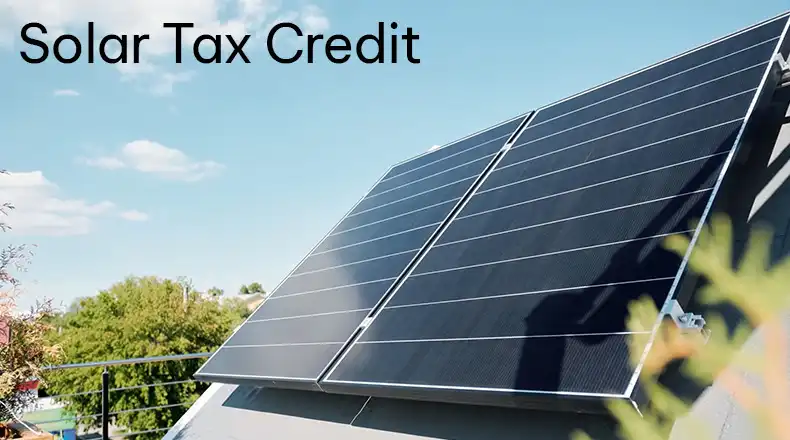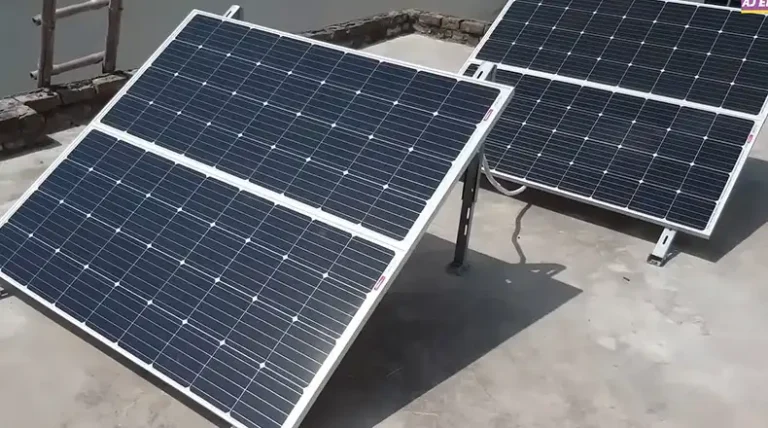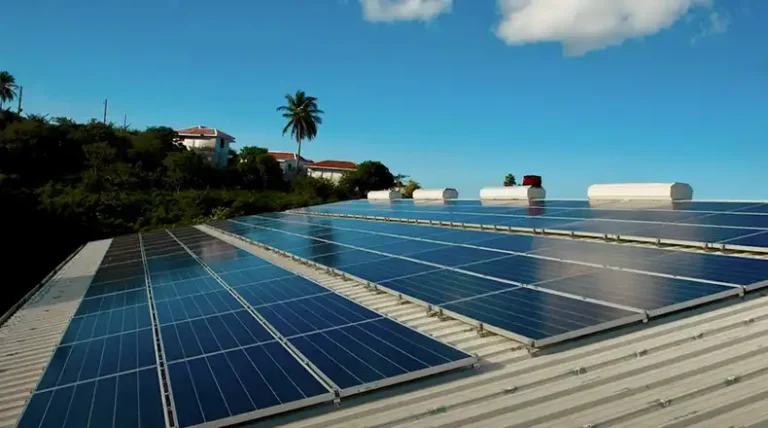How Does the Solar Tax Credit Work If I Don’t Owe Taxes?
Going solar is an excellent way to reduce your carbon footprint and save money on electricity bills in the long run. The federal government encourages this transition to renewable energy through the solar Investment Tax Credit (ITC), a tax incentive that can significantly lower the cost of installing solar panels. However, many homeowners and businesses wonder, “How does the solar tax credit work if I don’t owe taxes?”
The solar tax credit is non-refundable but can be carried forward to future tax years, so you can still benefit from going solar even if you don’t owe taxes this year.
This comprehensive article will address that common question and provide clarity on how non-taxpayers can still benefit from the solar ITC. We’ll explore the ins and outs of this valuable incentive, alternative options, and strategies to maximize your savings.

How Does the Solar Tax Credit System Works?
The solar ITC is a non-refundable tax credit, which means it can only reduce your tax liability to zero – it cannot provide you with a refund. This is an important distinction from refundable tax credits, which can result in a tax refund if the credit exceeds your liability.
| Refundable Tax Credit | Non-Refundable Tax Credit |
| Provides a refund if the credit exceeds tax owed | Cannot provide a refund; only reduces tax liability to zero |
| Example: Earned Income Tax Credit | Example: Solar Investment Tax Credit (ITC) |
Here’s what that means: Imagine you owe $1,000 in federal taxes and install a $10,000 solar system. The credit would be worth $3,000 (30% of $10,000). This fantastic credit would entirely eliminate your $1,000 tax liability, but you wouldn’t receive an additional $2,000 check from the IRS.
To be eligible, the solar system must meet certain requirements:
Residential systems: The system must be installed at your primary or secondary residence in the United States.
Commercial systems: The system must be used for a trade or business or for the production of income.
What Happens to Your Solar Credit If You Don’t Owe Taxes?
Since the solar ITC is non-refundable, it can only offset your tax liability – it cannot provide you with a refund if you don’t owe any taxes. While this may seem like a missed opportunity for non-taxpayers, there are differing perspectives on the matter:
1. Some argue that non-taxpayers can still benefit indirectly by reducing their tax liability to zero, effectively keeping more of their income or avoiding a larger tax bill in the future.
2. Others contend that without actual tax liability, non-taxpayers cannot truly realize the full value of the credit.
Ultimately, whether the solar ITC is beneficial for your specific situation depends on various factors, including your current and projected future tax liabilities. It’s crucial to consult with a qualified tax professional who can analyze your unique circumstances and provide personalized advice.
Carrying Forward the Unused Credit (20%)
If the solar ITC exceeds your tax liability in the year of installation, the good news is that you can carry forward the remaining credit to future tax years. This allows you to claim the credit over multiple years until it’s fully utilized.
To claim the credit, you’ll need to file IRS Form 5695 (Residential Energy Credits) along with your regular tax return. On this form, you’ll calculate the total credit amount and any portion carried forward from previous years.
When carrying forward the credit, it’s important to estimate your future tax liability accurately. This will help you determine how much of the credit you can realistically use each year and plan accordingly.
For example, let’s say you have $8,000 in remaining solar ITC after the installation year, and your projected tax liability for the next few years is:
– Year 2: $5,000
– Year 3: $4,000
– Year 4: $3,000
In this scenario, you could claim $5,000 of the credit in Year 2, reducing your tax liability to $0. Then, in Year 3, you could claim the remaining $3,000, again reducing your liability to $0. Any unused credit after that would need to be carried forward to subsequent years until fully utilized.
Alternative Options
If you don’t expect to have enough tax liability to fully benefit from the solar ITC, there are alternative options to consider:
Solar Leases and Power Purchase Agreements (PPAs): With these arrangements, a third-party company owns the solar system installed on your property, and you pay them for the electricity generated. Since the third-party owner can claim the ITC and other incentives, they can pass along those savings to you through lower electricity rates.
State and Local Incentives: Many states and municipalities offer their own solar incentives, such as rebates, tax credits, or performance-based incentives. These can further reduce the overall cost of going solar, making it more accessible for non-taxpayers.
Tax Planning Considerations for Maximizing ITC Benefirs
If you’re considering going solar and want to maximize the benefits of the ITC, it’s worth exploring strategies to increase your tax liability (if appropriate). Some potential options to discuss with your tax professional include:
- Adjusting your withholding allowances to have less tax withheld from your paychecks.
- Contributing to tax-advantaged retirement accounts to reduce your taxable income.
- Timing the recognition of income or deductions strategically.
Keep in mind that these strategies should align with your overall financial goals and should not be pursued solely for the solar ITC.
Summary
The solar Investment Tax Credit is a valuable incentive that can significantly reduce the cost of installing a solar energy system. While non-taxpayers may not be able to realize the full benefit of the credit in the form of a refund, they can still take advantage of it by reducing their tax liability to zero and carrying forward any unused credit to future years.
Remember, the solar ITC is just one piece of the puzzle. Even if you don’t owe taxes, investing in solar energy can pay off in the long run through lower electricity bills and a reduced carbon footprint. As renewable energy becomes increasingly accessible and affordable, it’s an opportunity worth exploring for both financial and environmental reasons.






![How to Connect Solar Panel to Inverter without Battery? [Answered]](https://www.itekenergy.com/wp-content/uploads/2024/06/How-to-Connect-Solar-Panel-to-Inverter-without-Battery-768x428.webp)